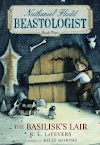Ideally, it’s best to read the whole manuscript out loud. You won’t believe how many things you’ll catch that way! However, I don’t always have time to do that, I’ll admit…what I do try to check for is:
Typos and misspellings
Weak words, especially verbs
Awkward phrasing
Wordy sentences (This is my Achilles heel. Bet you couldn't have guessed that...)
Overwriting
Adverbs (Although I must state I have a great fondness for adverbs. But the strong, expressive ones, not weak ones. Although sometimes I think those work for flow and balance.)
Echos (The same word showing up two or more times in rapid sequence. However, sometimes there really is no other word you can use, though, so you're stuck.)
Look for “to be” or was or were, see if stronger verbs could work there. (My rule of thumb is to keep the "to be" (or gerund) form of the verb if the action is continuous or ongoing. So, for example, He was walking across the street, then tripped. Which implies he tripped WHILE crossing the street. As opposed to, He walked across the street. He tripped. Which implies he tripped after he'd crossed the street. If that is the nuance of meaning you're going for, then keep the "was verbing".)
skip to main |
skip to sidebar







About Me
- Robin L
- Author of the THEODOSIA and NATHANIEL FLUDD, BEASTOLOGIST series, as well as the upcoming, GRAVE MERCY, about teen assassins in medieval France. I love to talk about writing, inspiration, and the human psyche.
Archives
-
►
2016
(1)
- ► August 2016 (1)
-
►
2012
(1)
- ► February 2012 (1)
-
►
2011
(26)
- ► November 2011 (3)
- ► October 2011 (1)
- ► April 2011 (4)
- ► March 2011 (3)
- ► February 2011 (5)
- ► January 2011 (8)
-
►
2010
(107)
- ► December 2010 (6)
- ► November 2010 (6)
- ► October 2010 (7)
- ► September 2010 (9)
- ► August 2010 (6)
- ► April 2010 (15)
- ► March 2010 (5)
- ► February 2010 (6)
- ► January 2010 (9)
-
▼
2009
(159)
- ► December 2009 (11)
- ► November 2009 (12)
- ► October 2009 (12)
- ► September 2009 (15)
-
▼
August 2009
(20)
- Present Tense? Really?
- Beastologist News and Updates
- Notes From the Conference-Wendy Loggia, Delacorte
- Juggling a Cast of Characters
- Notes From the Conference-Karen Cushman
- And The Winner Is . . .
- Notes From the Conference-Anica Rissi of Simon PULSE
- Notes From The Conference - Holly Black
- The Reviews! And an ARC Giveaway!
- Book III: Theodosia and the Eyes of Horus
- Best. Writing. Day. Ever.
- Cool News!
- Notes From the Conference-Sherman Alexie
- Re-Entry
- Where I Write
- Small Epiphany
- Protect The Work - Even the Early Stuff
- Tuesday Hodge Podge
- The Art of Revising - Polishing
- Brass Tacks
- ► April 2009 (15)
- ► March 2009 (8)
- ► February 2009 (6)
- ► January 2009 (10)
-
►
2008
(49)
- ► December 2008 (8)
- ► November 2008 (9)
- ► October 2008 (2)
- ► August 2008 (1)
- ► April 2008 (2)
- ► March 2008 (1)
- ► February 2008 (5)
- ► January 2008 (8)
-
►
2007
(29)
- ► October 2007 (1)
- ► September 2007 (4)
- ► August 2007 (4)
- ► April 2007 (3)
- ► March 2007 (2)
- ► February 2007 (5)
- ► January 2007 (4)
-
►
2006
(36)
- ► December 2006 (2)
- ► November 2006 (6)
- ► October 2006 (3)
- ► September 2006 (9)
- ► August 2006 (11)
Powered by Blogger.
Search This Blog

Also Check Out

Categories
- Appearances (13)
- backstory (1)
- Beastologist (1)
- book covers (3)
- book giveaway (1)
- book recommendation (5)
- book signings (1)
- cartography (2)
- character arcs (1)
- character layers (2)
- character questions (1)
- character voice (3)
- characterization (22)
- characterization worksheet (1)
- characters (2)
- collage (4)
- concrete objects (1)
- Conflict (4)
- core themes (1)
- craft (19)
- e-readers (1)
- early maps (2)
- fast writer (1)
- GeekMom (2)
- hero's journey (6)
- historical accuracy (1)
- index cards (1)
- Kelly Murphy (1)
- names (2)
- Nathaniel Fludd (9)
- pacing (3)
- plot (15)
- plot threads (1)
- plotting (1)
- POV (1)
- pre-writing (4)
- R. L. LaFevers (1)
- research (4)
- revision (8)
- Save the Cat (1)
- setting (2)
- Shrinking Violets (1)
- slow writer (1)
- Starting a novel (1)
- story (3)
- story development (1)
- story voice (1)
- structure (4)
- sub plots (1)
- technology (2)
- The Unicon's Tale (1)
- themes (1)
- Theodosia (5)
- Theodosia and the Eyes of Horus (1)
- Theodosia and the Last Pharaoh (1)
- voice (4)
- worksheets (1)
- worldview (1)
- writing (24)
- writing careers (1)
- writing process (1)
Copyright (c) 2010 R. L. LaFevers.
Designed by Simple Blogger Templates
Powered by Blogger













0 comments:
Post a Comment